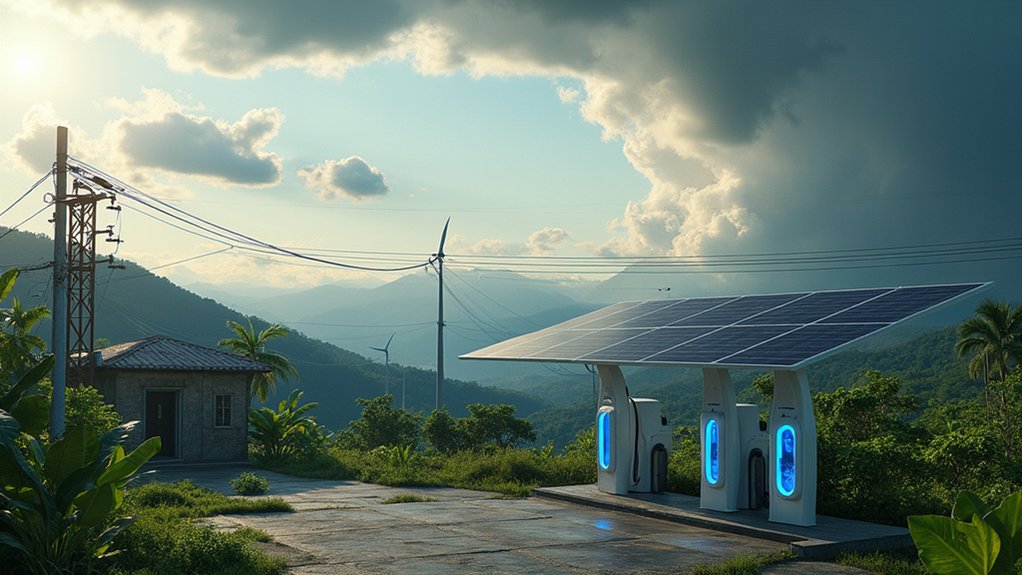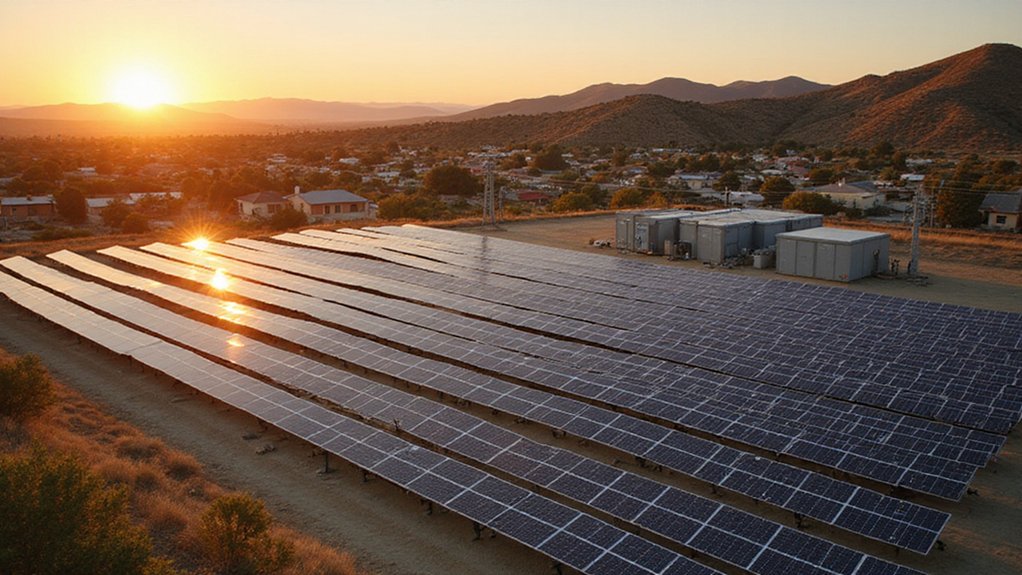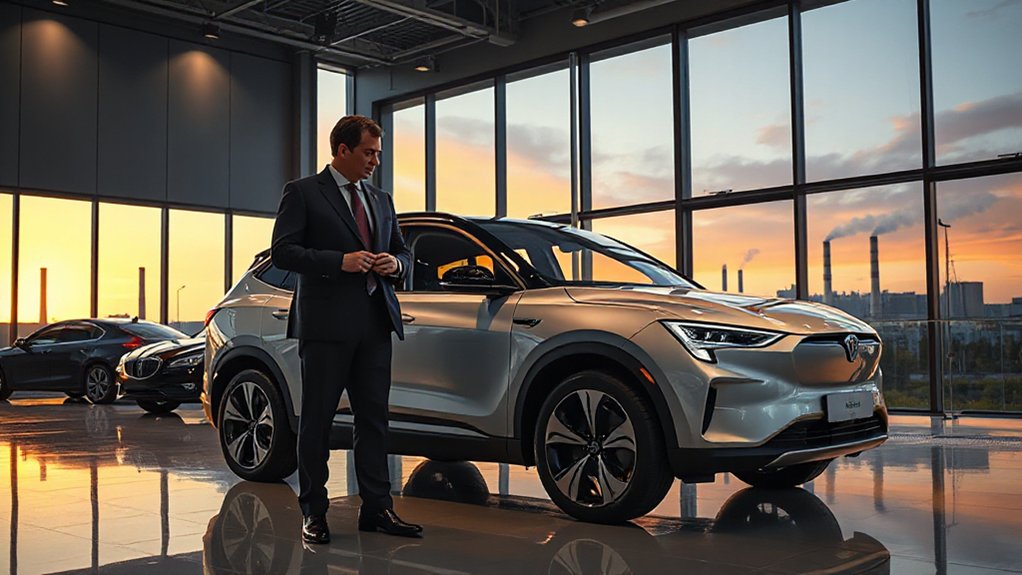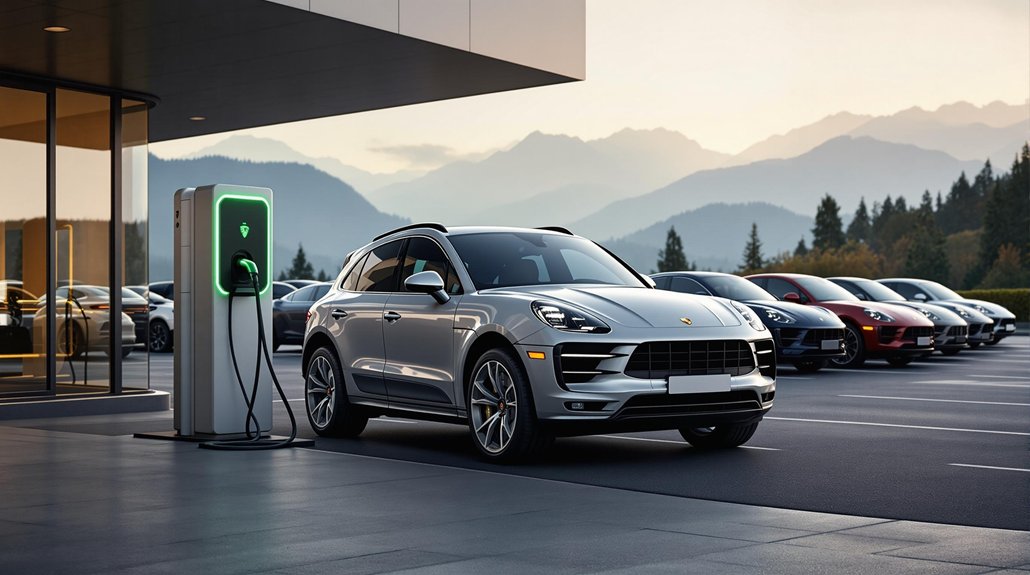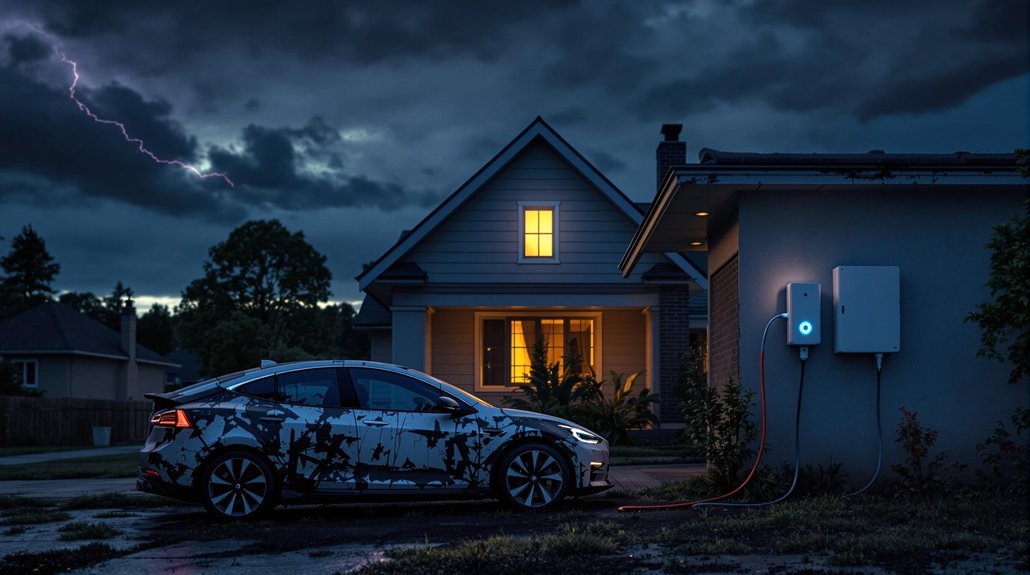A major tech company is shaking up Brazil’s energy market with lightning-fast EV charging stations. The timing? Just before a vital battery auction. Pretty convenient. Traditional energy providers are panicking as tech giants leverage data expertise to transform electricity distribution. This disruption coincides with Brazil’s renewable energy boom and emergence as a lithium powerhouse. With $85 billion in energy investments needed by 2030, old-school utilities better innovate fast. The energy transformation waits for no one.
Silicon Valley has crashed Brazil’s energy party, and the old-school utilities aren’t laughing. Major tech companies are storming into the country’s energy landscape with disruptive force, bringing lightning-fast EV charging infrastructure that’s making traditional providers sweat. The timing? Just before pivotal battery auctions that could reshape the entire sector. Talk about stealing thunder.
Brazil’s energy matrix is already greener than most countries dream of being. Renewables are on track to exceed 85% by 2030, with hydropower remaining the backbone at an expected 130 GW. Wind and solar aren’t far behind, projected to hit 40 GW and 35 GW respectively. The country’s basically a clean energy paradise in the making.
But here’s the kicker—tech giants aren’t just selling gadgets anymore. They’re building infrastructure that directly challenges conventional electricity and fuel distribution models. These companies move fast, while traditional utilities move at the speed of, well, traditional utilities. Following the global trend, Brazil’s solar additions are rapidly accelerating with capacity additions similar to patterns seen in other expanding markets.
The disruption comes as Brazil positions itself as a mineral powerhouse. The country’s “Lithium Valley” in Minas Gerais has exploded from zero lithium exports to becoming the fifth-largest global exporter in under two years. Eleven active projects and counting. Not too shabby.
The economic stakes are massive. Over $6 trillion in investment is needed by 2050 for Brazil to reach its net-zero goals. The government is throwing subsidies and credit lines at the problem, desperately trying to build domestic capacity before foreign companies gobble up all the opportunities.
Smart sensors, data analytics, and IoT are being integrated into grid management faster than you can say “digital transformation.” Traditional providers are scrambling to adapt or die. This technological transformation is especially crucial given the regulatory uncertainty that has plagued Brazil’s energy sector for decades. Despite having a substantially cleaner energy matrix than many other nations, Brazil still faces significant challenges in transitioning away from its heavy dependency on hydropower.
For Brazil’s energy incumbents, this is their Kodak moment. Adapt to the tech invasion and embrace the lightning-speed of innovation—or become another cautionary business school case study. The clock’s ticking.
References
- https://energycentral.com/c/cp/energy-sector-brazil-depth-analysis-challenges-and-future-perspectives
- https://cebri.org/revista/en/artigo/61/sustainability-transition-challenges-in-the-brazilian-energy-sector
- https://d3.harvard.edu/platform-rctom/submission/digitalization-in-the-brazilian-energy-sector-time-for-disruption/
- https://about.bnef.com/blog/brazil-requires-over-6-trillion-in-energy-investment-by-2050-to-reach-net-zero-according-to-bloombergnef/
- https://www.wilsoncenter.org/article/brazils-critical-minerals-and-global-clean-energy-revolution
